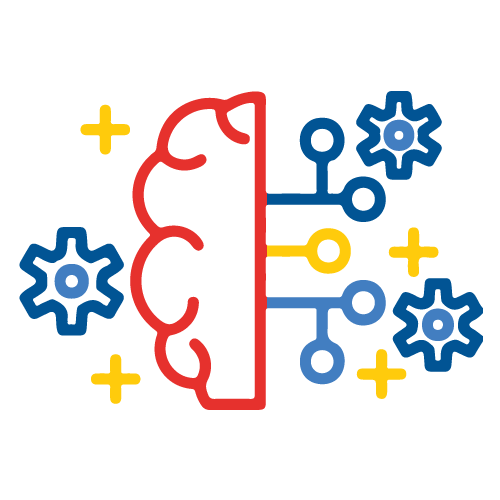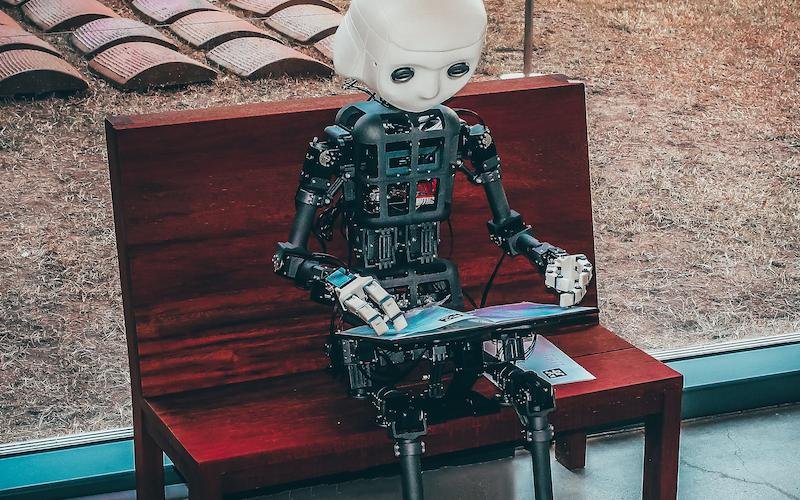Curated by: Sergio A. Martínez
Without question, the wide strides that AI technology has made in the last few years have brought it from a niche novelty to a serious force in the tech sector, enabling the development of tools that will change the way we use and create software, art, and writing, as well as bringing a level of efficiency that could change the industry as we know it. Truly, 2023 seems to be the year where AI will leave a profound mark, and being aware of what to expect will be important for an industry where change can happen overnight.

We’ll see a lot more AI-enabled devices in our homes and workplaces, as well as a continued increase in the use of AI for things like facial recognition and target marketing. We may also see some interesting new applications of AI, such as using it to create more realistic virtual worlds or to help automate complex financial transactions. Of course, there will also be plenty of challenges to overcome, such as ensuring that AI systems can operate safely and ethically. But I remain optimistic about the future of AI, and I think it has the potential to truly transform our world for the better.
The AI of today and tomorrow

AI is still in its early developmental stages, which means that a limited number of tools are available for implementing AI. However, some of the most important tools currently available include natural language processing, which is used to analyze and interpret human language, which is essential for developing intelligent assistants and chatbots, predictive analytics to make predictions about future events, trends, and behaviors, and machine learning, used to create algorithms that can learn and improve from experience. These three tools are essential for developing AI applications and will become even more important as AI technology advances. With these rapid developments, AI will become one of the most important tools in various fields, and the trends for 2023 will include…
1) A wider democratization of this tech
AI is no longer the exclusive domain of scientists and engineers. Today, anyone with an internet connection can access powerful AI tools and resources. This has leveled the playing field, allowing people from all walks of life to create and experiment with AI. This increased accessibility has already had a transformative effect on the world, and it is only going to become more pronounced in 2023 and forward. As AI continues to evolve, it will become an increasingly important part of our lives, changing the way we live, work, and interact with the world around us, with a level of quality expectation that will certainly affect the products and services offered by almost every type of business.
2) The rise of prompt engineering
The topic of prompt engineering is one we have touched on before, doing an overview of how this field will become a career in demand in coming years thanks to the increasing popularity of AI tools for general consumption. For those not in the know, prompt engineering is a “Natural Language Processing” area, where you design the final output of an AI system by carefully constructing the instructions for its generative engine. With an application in everything, from art to coding, prompt engineers will become a very in-demand position for organizations heavily investing in AI toolsets, so 2023 will bring a very interesting change in the job landscape.
3) No-code platforms and other generative tools
Speaking of which, generative tools are here to stay. With applications like Dall-E opening to the general public, generative tools are becoming a unique way of approaching problem-solving, allowing their users to explore and experiment with different possible solutions. This approach is well-suited to the rapidly changing field of artificial intelligence, where new challenges and opportunities are constantly emerging. Additionally, generative tools can help to automate the process of creating training data sets, which is essential for machine learning. As AI generative tools become more sophisticated, they are likely to play an increasingly important role in the advancement of artificial intelligence in 2023.
4) Ethical AI
Artificial intelligence is often lauded as a transformative technology that has the potential to revolutionize industries and change the way we live. However, AI also raises significant ethical concerns, which need to be addressed to ensure this technology is as useful and safe as possible. One of the most pressing issues is the lack of diversity in the field of AI, which creates a risk of bias being built into algorithms, as we have seen before, for example, with Application Tracking Systems within the HR field, which tend to be easily gamed, proving inaccurate (or worse) when selecting the appropriate candidate for an open position.
Another major concern is data privacy. After all, AI systems are becoming increasingly adept at gathering and analyzing data. In some cases, they may even be able to eavesdrop on our conversations or track our movements. As a result, there is a real risk that our personal information could be leaked or mishandled.
Finally, there is the issue of transparency. Due to the complex nature of AI algorithms, many experts fear that the opaque nature of AI could be exploited for nefarious purposes, such as mass surveillance or even control of public opinion. Furthermore, the rapid pace of development in AI is outstripping our ability to understand and regulate it, and as a result, there is a real risk that AI could be abused in ways that we cannot even imagine. For these reasons, 2023 will be an essential year to demand greater transparency from those who are developing and deploying AI technology. Only then can we hope to prevent its misuse.
5) Leaps in autonomous systems
In a world that is becoming increasingly reliant on technology, it is no surprise that autonomous AI systems are gaining in popularity. These systems can perform tasks that would normally require human involvement, such as monitoring inventory levels or providing customer service, and even historically riskier fields, like transport and industrial applications are becoming more reliable and cheap enough that 2023 will likely see mass adoption of these tools in everyday tasks. The clear advantage they have by operating around the clock without needing breaks, and their lack of susceptibility to emotions or fatigue is a huge advantage over traditional systems, helping to improve efficiency and productivity in a variety of industries. As more businesses begin to recognize the benefits of these autonomous systems, their popularity will likely continue to grow in the coming year.
Final notes

With all this said, 2023 is shaping up to be the «Year of AI». The sheer amount of data that will be generated by businesses and individuals will continue to grow exponentially, allowing for better training of AI algorithms, and making them more accurate and efficient. And the cost of computing power and storage will continue to decline, making it more accessible to businesses and organizations of all sizes, with breakthroughs in AI technology enabling humans and machines to work together more seamlessly than ever before. And as long as AI’s ethical concerns will be addressed more seriously, this technology will be increasingly ubiquitous in daily life, both inside and outside of work. All of these factors together make 2023 the year that AI will come into its own and begin to transform the world as we know it. Are you ready to embrace it?
The Key Takeaways
- The rapid evolution of AI technologies has made them a viable tool in plenty of industries, and 2023 can be a landmark year in its adoption.
- Although still in the early stages of development, disciplines like natural language processing, machine learning, and predictive analytics have pushed AI into mainstream usage.
- Specifically, AI will increase the popularity of prompt engineering, generative tools, and autonomous systems.
- This democratization of this tech, while bringing innovation at an unprecedented pace, also has ethical concerns that the industry needs to solve to guarantee a safe implementation of AI in daily life.
Scio is an established Nearshore software development company based in Mexico that specializes in providing high-quality, cost-effective technologies for pioneering tech companies. We have been building and mentoring teams of engineers since 2003 and our experience gives us access not only to the knowledge but also the expertise needed when tackling any project. Get started today by contacting us about your project needs – We have teams available to help you achieve your business goals. Get in contact today!
